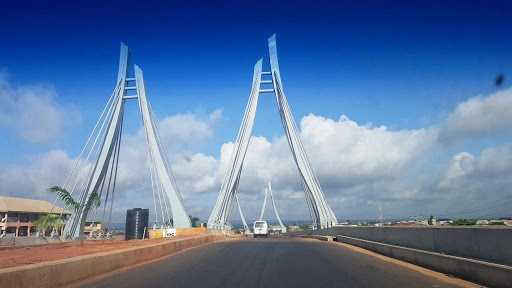Awka, Capital City Of Squalor
Awka of today, as a city and a people, is denigrated, despised, and dishonoured. This is an absurdity, when compared with Awka of three decades past and before; even when the town was a city-state. Awka, with a rich history of enterprise and industry, craftsmanship and statesmanship is, today, a shadow of its old self. The town is abased by powers that ought to uplift it, leaving it in ruins and a deep state of physical and environmental stupor, festering in opprobrious decay. Awka of the days gone by was well organised; its people well-respected, and the town ranked high among the leading urban cities of the old Eastern Region, as well as in the Igbo nation.
Ndi Awka once peregrinated even to the remotest parts of Nigeria’s littoral region and the Benin, Yoruba and Igala kingdoms, spreading their influence, power and authority, exporting its commerce and industry, fostering socio-cultural affinities across foreign lands. Unfortunately, they are, today, ineffably humiliated due to a meltdown arising from an apparent interplay of contemporary forces, meddlesomeness and attritional damage. Awka has been comatose for nearly thirty years, ridiculed and betrayed, by all the administrations that had superintended over it since 1991, when it became capital of Anambra state.
This sad situation has been foisted on Awka by narrow-minded, parochial and myopic leaders in control of the apparatus of state power who deliberately refused to see anything good about the city and have consciously left it bare, hollow, and undeveloped. While the indigenous population of the capital city wished for a Messiah, to take the capital out of the woods and shackles of physical backwardness, the so-called Awka Capital Development Authority (ACDA), now rechristened Awka Capital Territory Development Authority (ACTDA), was looked upon as the fulcrum for this purpose. Sadly, this organ of government is not only a mockery of good intentions, it is unequivocally a sham, façade, charade or whatever word one wishes to describe it. ACTDA, to our minds, is an unbridled rape on democracy, lacking the astuteness to deliver the goods. It would, therefore, not be misplaced to refer to it (ACTDA) as deceit of the highest order, intent to pull the wool over the eyes of Awka indigenes and well-meaning Anambra citizens.
Presently, the capital city is devoid of notable infrastructure. The few bitumen-paved roads, put together in the days of the Petroleum Trust Fund (PTF), are in a horrible state of disrepair. Wherever one goes within the city, the earth roads are dilapidated and impassable. The entire city is ravaged by floods, especially during the wet season when the two major arterial roads, the Nnamdi Azikiwe and Arthur Eze Avenues, become mere flood channels, more or less. The same is true of the entire inland town. It is usually a sorry sight to behold, as the deluge of flood and the loads of shifting sands and rubbish they carry, are nauseatingly emptied on the roads; silting the drains and leaving the entire place in a horrendous state of filth and dirt. Many have had to lose their lives and properties in the floods, just as homes have been sacked, and the people rendered homeless.
In like manner, the cacophonous state of Awka’s main market (the Eke Awka) deserves a mention here. The market is an embarrassment to the ethics of good urban planning and organisation, a gross abuse of the sensibilities of decent people. The place is squalid and an eyesore, to say the least. Housing a conglomeration of sellers and buyers, bottled together in a suffocating chamber of perilous structures, poorly planned, and very poorly laid out, the place is a similitude of an apparently dormant volcano, waiting to erupt.
During rush hours or peak periods, it could be daunting, if not disgusting to enter or leave the market. At such times, especially in the evenings, the vicinities of the marketplace are usually turned into a staccato of activities. Hawkers and small-time traders who, in a last-ditch effort to make sales for the day, take up almost every available space on the main thoroughfares of Zik and Arthur Eze Avenues, around the roundabout, the intersection of both roads, spanning tens of metres down both roads, and causing a terrific traffic bottleneck. Both roads, thus, become so constricted that vehicles and other road users, even including pedestrians, have to endure to disentangle themselves from the gridlock. This debilitating situation is even more so on weekends – on Saturdays, in particular; not even less so, on Sunday mornings.
Much more nauseating is the activity of all kinds and manner of governmental and nongovernmental apparatchiks, some to control traffic and quite a number of others, to enforce the orders prohibiting street trading. However, as is their wont, members of these agencies harass and intimidate, and extort money from desperate hawkers, coercing them into submission. They, no sooner after collecting monies, ‘look the other way’, allowing defaulters to infringe on the rules and carry on their businesses unfettered. As far as the matter pertains to Eke Awka, the government of the day is henpecked, as it were. It is incontrovertible that the touts, the agents, and the apparatchiks are the foot soldiers of, or fronts for people in high places, mandated to collect market stall and ground fees and rates and levies, all in the name of internally generated revenue. However, it is also unequivocal that those monies find their ways into private pockets. It is, therefore, doubtful how much of these monies ‘enter’ government coffers.
Finally, we think that it is time that the government came out of its shadows of deceit, to attend to the problems that, daily, stare it in the face, insofar as the Awka capital city is concerned. It would also be necessary for it to rejig and sanitise its revenue collecting mechanism, for the optimal good of the state.
The Anambra state government should wake up to its responsibilities. A stitch in time, they say, saves nine.
P. Hezekiah Dike is of the Awka Elders Consultative Forum and writes from Awka.
#orientdailynews












